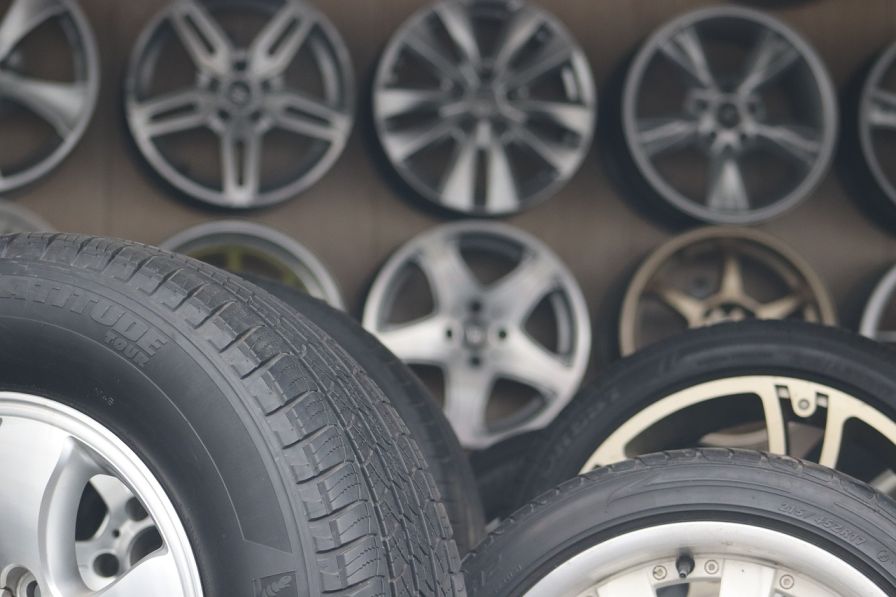Every activity demands the use of the appropriate tool for the job. As a result, choosing the correct tyre type for a forklift is crucial. When it comes to working on uneven roads, pneumatic tyres are the best option. But what makes pneumatic tyres the best choice for outdoor use? Here’s some additional information about pneumatic tyres, including their benefits and drawbacks.
How do Pneumatic Tyres work?
Air-filled pneumatic tyres work by encapsulating compressed air inside an airtight framework. It is usually strengthened with steel belting or another strong material all around it. You must check your tyre pressure, and if it is correct, you will notice a much smoother shift across a range of terrains. Because solid tyres are, well, solid, they’re an excellent choice if you’re working in an area with nails, screws, or anything else that may cause a puncture.
The air pressure within the tyre is greater than the outside pressure. This means that these Goodyear Tyres Newport could easily withstand the weight without flattening or losing pressure. After all, maintaining the tyre’s condition requires using the right pressure and filling it off as needed.
What Makes Pneumatic Tyres Distinctive?
The pneumatic tyres absorb ground irregularities. When travelling over uneven and shaky terrain, it delivers a pleasant ride. These tyres also feature a thicker thread, which improves traction on tough or uneven terrain. Because the pressure of the air within the tyre is greater than the pressure of the surrounding environment, the tyre remains inflated regardless of the weight of the automobile laying on it.
A Forklift Can Use One Of Two Types Of Pneumatic Tyres: Solid Or Air
- Solid
Because a solid pneumatic tyre is constructed of rubber, it is resilient to punctures. If you see nails, stones, or sharp objects in your company on a frequent basis, you should invest in durable tyres.
- Air
An air pneumatic tyre is one that is filled with air and reinforced with steel belting tread that surrounds the internal core and provides road stability. To a limited extent, air-pressured tyres provide protection against forces that seek to deform the tyre.
Pneumatic tyres may have downsides, especially in high-performance or high-risk applications. If there is a puncture, the tyre will fail altogether, necessitating the replacement of the entire component. Furthermore, low tyre pressure can cause the tyre sidewalls to buckle, resulting in poor performance. As a result, in order for pneumatic tyres to perform effectively, users must constantly monitor their tyre pressure. Take notice that while deciding between the cushion and pneumatic tyres, you must choose what is suitable for your industry; you cannot change the tyres after you have made your decision. Because these tyres require different casings, they are not changeable.
Pros Of Pneumatic Tyres
- Shock absorption
Driving over bumps can provide a jolt to any weight on the tyres. If something is not present, things may fall and become unstuck. These wheels are required if you need to transport expensive or precious items.
- Deliver a good degree of comfort and operation silence
Pneumatic tyres are consequently quiet in operation due to their flexible rubber tread and shock-absorbing capabilities. The elimination of loud noises improves ride quality and convenience.
- Easily deformable
They bend easily because rubber is pliable and air compresses, allowing the tyre to bend around obstacles in its path.
- Ideal for uneven terrain
Pneumatic tyres are great for responding to uneven terrain as well as absorbing stress. They are popular for wheelbarrows because they operate well on difficult terrain. And, because they are puncture-resistant, neither thorns nor nails could hinder it. Buy Cheap Tyres Newport online.
Cons Of Pneumatic Tyres
- Checking the air pressure is necessary
As with everything that has a tyre, you must ensure that the pressure is properly set. You wouldn’t drive a car with a flat tyre, so never utilise something that seems to be under-inflated. They are simple to inflate, but make sure you have the correct level. Overinflation is just as bad as running a tyre with inadequate air.
- Military applications are not viable
Military vehicles are frequently subjected to incidents such as gunfire or explosives, which can result in fragmentation puncturing pneumatic tyres. Punctured tyres might be disastrous for such vehicles if they come under fire, limiting their manoeuvrability.
